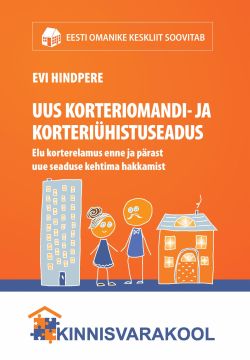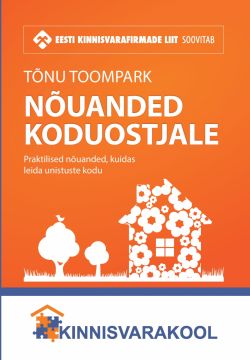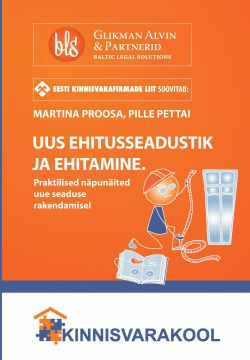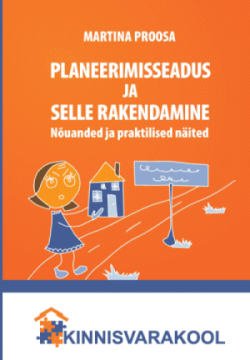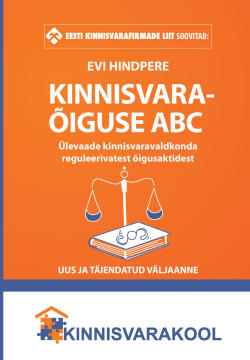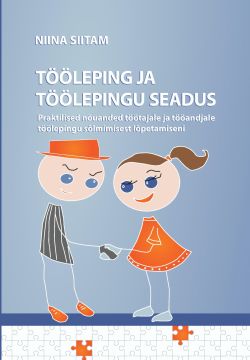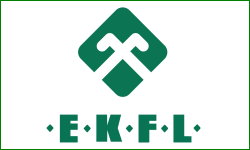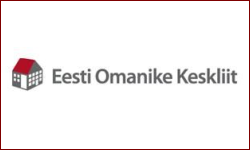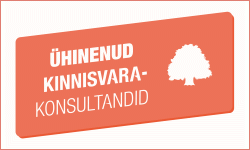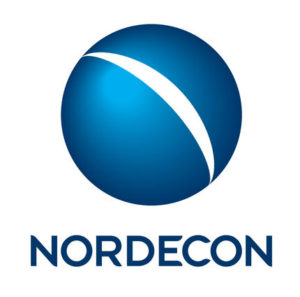 The key words for 2021 are the rapid recovery of the construction market volumes that fell in 2020 and the sharp rise in input prices, which put strong pressure on the cost of previously concluded long-term construction contracts. The whole year has been characterized by difficult availability of materials and a large-scale rise in prices, to which in the second half of the year was added the accelerating growth of labour costs.
The key words for 2021 are the rapid recovery of the construction market volumes that fell in 2020 and the sharp rise in input prices, which put strong pressure on the cost of previously concluded long-term construction contracts. The whole year has been characterized by difficult availability of materials and a large-scale rise in prices, to which in the second half of the year was added the accelerating growth of labour costs.
Gerd Müller, Chairman of the Management Board of Nordecon AS:
“The year 2021 was undoubtedly full of challenges for the Nordecon Group. As the largest market participant, we have had to bear the same proportion of market risks. Given the turbulence caused by the pandemic, our people have done a very good job and we have been able to hand over the objects on time. The difficult market situation has put pressure on us to make additional efforts to develop and deploy our digital solutions. We can see that the key to more efficient process management is for the general contractor to achieve greater efficiency.
Dealing with the price shock in the construction market tested the results of both of our main operating segments. Despite the extremely difficult economic environment for the construction service provider, we were able to achieve operating profit in our home market in Estonia. All reported losses have been earned from non-recurring losses in the Swedish market. ”
The Group’s gross profitability decreased compared to the previous year, amounting to 1.4% (2020: 3.7%). Profitability was mainly affected by rising input prices and supply problems. In 2021, the Group carried out a large number of construction contracts concluded in 2020, which did not yet take into account the necessary flexibility due to the rapid change in the market situation. Another important factor is the small share of asphalt concrete production and installation due to the nature of the Group’s work portfolio, due to which the fixed costs are not covered to a greater extent than usual.
In the Swedish market, the group made significant losses. Expenses related to the completion of construction works of apartment buildings and wind farms totalled 3,346 thousand euros, to which was added a credit loss from the inclusion of receivables from the customer in the amount of 2,144 thousand euros.
The Group’s sales revenue in 2021 amounted to 288,534 thousand euros (2020: 296,082 thousand euros). Compared to the previous year, Estonia’s sales revenue has increased by 13%, the reason for the 2.5% decrease in total sales revenue is the decrease in sales volumes in foreign markets.
The volume of unfinished construction contracts entered into by the Group’s companies is 266,856 thousand euros as of 31 December 2021, which is an increase of approximately 24% compared to the previous year. In 2021, new contracts totalling 314,758 thousand euros were entered into. Considering the size of the portfolio of unfinished works, including the volume to be transferred to 2023, an increase in operating volumes can be forecast in 2022.
Condensed consolidated interim statement of financial position
| €’000 | 31 December 2021 | 31 December 2020 |
| ASSETS | ||
| Current assets | ||
| Cash and cash equivalents | 9,031 | 12,576 |
| Trade and other receivables | 48,091 | 50,029 |
| Prepayments | 4,947 | 2,638 |
| Inventories | 25,637 | 22,454 |
| Total current assets | 87,706 | 87,697 |
| Non-current assets | ||
| Investments in equity-accounted investees | 0 | 0 |
| Other investments | 76 | 26 |
| Trade and other receivables | 9,206 | 8,654 |
| Investment property | 5,599 | 5,639 |
| Property, plant and equipment | 17,433 | 18,053 |
| Intangible assets | 15,051 | 14,966 |
| Total non-current assets | 47,365 | 47,338 |
| TOTAL ASSETS | 135,071 | 135,035 |
| LIABILITIES | ||
| Current liabilities | ||
| Borrowings | 16,289 | 18,508 |
| Trade payables | 57,287 | 46,932 |
| Other payables | 7,496 | 12,232 |
| Deferred income | 11,539 | 7,738 |
| Provisions | 707 | 1,059 |
| Total current liabilities | 93,318 | 86,469 |
| Non-current liabilities | ||
| Borrowings | 7,405 | 7,352 |
| Trade payables | 4,178 | 2,332 |
| Provisions | 2,044 | 1,647 |
| Total non-current liabilities | 13,627 | 11,331 |
| TOTAL LIABILITIES | 106,945 | 97,800 |
| EQUITY | ||
| Share capital | 14,379 | 14,379 |
| Own (treasury) shares | (660) | (660) |
| Share premium | 635 | 635 |
| Statutory capital reserve | 2,554 | 2,554 |
| Translation reserve | 1,948 | 2,423 |
| Retained earnings | 6,341 | 14,543 |
| Total equity attributable to owners of the parent | 25,197 | 33,874 |
| Non-controlling interests | 2,929 | 3,361 |
| TOTAL EQUITY | 28,126 | 37,235 |
| TOTAL LIABILITIES AND EQUITY | 135,071 | 135,035 |
Condensed consolidated interim statement of comprehensive income
| €’000 | Q4 2021 | 12M 2021 | Q4 2020 | 12M 2020 | |
| Revenue | 79,640 | 288,534 | 78,418 | 296,082 | |
| Cost of sales | (80,514) | (284,513) | (76,937) | (285,086) | |
| Gross profit (loss) | (874) | 4,021 | 1,481 | 10,996 | |
| Marketing and distribution expenses | (165) | (559) | (142) | (528) | |
| Administrative expenses | (1,786) | (6,053) | (1,761) | (7,073) | |
| Other operating income | 321 | 519 | 180 | 453 | |
| Other operating expenses | (2,171) | (2,264) | (135) | (273) | |
| Operating profit (loss) | (4,675) | (4,336) | (377) | 3,575 | |
| Finance income | 81 | 958 | 2,725 | 2,995 | |
| Finance costs | (378) | (1,320) | (576) | (2,678) | |
| Net finance income (costs) | (297) | (362) | 2,149 | 317 | |
| Share of profit (loss) of equity-accounted investees | 0 | 0 | (232) | 734 | |
| Profit (loss) before income tax | (4,972) | (4,698) | 1,540 | 4,626 | |
| Income tax expense | (166) | (808) | (426) | (508) | |
| Profit (loss) for the period | (5,138) | (5,506) | 1,114 | 4,118 | |
| Other comprehensive income (expense): Items that may be reclassified subsequently to profit or loss |
|||||
| Exchange differences on translating foreign operations | 85 | (475) | (121) | 1,254 | |
| Total other comprehensive income (expense) | 85 | (475) | (121) | 1,254 | |
| TOTAL COMPREHENSIVE INCOME (EXPENSE) | (5,053) | (5,981) | 993 | 5,372 | |
| Profit (loss) attributable to: | |||||
| – Owners of the parent | (5,514) | (6,310) | 1,426 | 2,466 | |
| – Non-controlling interests | 376 | 804 | (312) | 1,652 | |
| Profit (loss) for the period | (5,138) | (5,506) | 1,114 | 4,118 | |
| Comprehensive income attributable to: | |||||
| – Owners of the parent | (5,429) | (6,785) | 1,305 | 3,720 | |
| – Non-controlling interests | 376 | 804 | (312) | 1,652 | |
| Comprehensive income (expense) for the period | (5,053) | (5,981) | 993 | 5,372 | |
| Earnings per share attributable to owners of the parent: | |||||
| Basic earnings per share (€) | (0.17) | (0.20) | 0.05 | 0.08 | |
| Diluted earnings per share (€) | (0.17) | (0.20) | 0.05 | 0.08 | |
Condensed consolidated interim statement of cash flows
| €’000 | 12M 2021 | 12M 2020 |
| Cash flows from operating activities | ||
| Cash receipts from customers | 352,378 | 345,552 |
| Cash paid to suppliers | (310,183) | (305,500) |
| VAT paid | (8,140) | (9,909) |
| Cash paid to and for employees | (25,893) | (27,409) |
| Income tax paid | (797) | (291) |
| Net cash from operating activities | 7,365 | 2,443 |
| Cash flows from investing activities | ||
| Paid on acquisition of property, plant and equipment | (232) | (254) |
| Paid on acquisition of intangible assets | (19) | (17) |
| Proceeds from sale of property, plant and equipment | 489 | 332 |
| Cash received on acquisition of a subsidiary | 0 | 3,605 |
| Proceeds from sale of an investment in an associate | 0 | 3,596 |
| Loans provided | (34) | (17) |
| Repayments of loans provided | 96 | 44 |
| Dividends received | 0 | 974 |
| Interest received | 12 | 23 |
| Net cash from investing activities | 312 | 8,286 |
| Cash flows from financing activities | ||
| Proceeds from loans received | 1,922 | 2,026 |
| Repayments of loans received | (3,766) | (2,629) |
| Lease payments made | (3,318) | (3,086) |
| Interest paid | (1,051) | (927) |
| Dividends paid | (5,000) | (472) |
| Other payments | (12) | (77) |
| Net cash used in financing activities | (11,225) | (5,165) |
| Net cash flow | (3,548) | 5,564 |
| Cash and cash equivalents at beginning of period | 12,576 | 7,032 |
| Effect of movements in foreign exchange rates | 3 | (20) |
| Increase (decrease) in cash and cash equivalents | (3,548) | 5,563 |
| Cash and cash equivalents at end of period | 9,031 | 12,576 |
Financial review
Financial performance
The Nordecon group ended 2021 with a gross profit of €4,021 thousand (2020: €10,996 thousand) and a gross margin of 1.4% (2020: 3.7%). Gross margins decreased in both operating segments. The gross margin of the Buildings segment was 2.0% for the year and a negative 0.7% for the fourth quarter (2020: 3.6%; Q4 2020: 0.7%). The figures of the Infrastructure segment were 1.0% for the year and a negative 1.4% for the fourth quarter (2020: 5.1%; Q4 2020: 6.1%). The gross margin of the Buildings segment was mainly influenced by:
- Growth in input prices, which mainly affected contracts signed in 2020. The prices of raw materials and supplies stabilised somewhat in the third quarter but soaring energy prices and labour costs had a strong impact on fourth-quarter inputs.
- Supply chain disruptions, which continue to put pressure on the timely completion of construction projects. Extensions of contract terms cause additional costs.
- One-off losses in the Swedish market. The costs related to the completion of two projects (the Nysäter wind farm and an apartment building) totalled €3,346 thousand.
The performance of the Infrastructure segment was also influenced by the upswing in materials prices, especially the prices of metal and energy carriers, which increased the production cost of asphalt concrete. Another factor was the order book structure: the share of projects involving the production and laying of asphalt concrete was small and thus the share of uncovered fixed costs was higher than usual.
The group’s administrative expenses for 2021 were €6,053 thousand. Compared with 2020, administrative expenses decreased by around 14% (2020: €7,073 thousand), mainly through a decline in personnel expenses. The ratio of administrative expenses to revenue (12 months rolling) was 2.1% (2020: 2.4%).
The group ended 2021 with an operating loss of €4,336 thousand (2020: operating profit of €3,575 thousand). Operating profit was affected by the recognition of credit losses of €2,144 thousand. A major share of the credit losses resulted from expensing the receivables due from a customer of the Swedish subsidiary. EBITDA was negative at €797 thousand and EBITDA margin was negative at 0.3% (2020: positive at €7,003 thousand and 2.4%).
The group’s finance income and costs are affected by exchange rate fluctuations in the group’s foreign markets. During the period, the Ukrainian hryvnia strengthened against the euro by around 12% while the Swedish krona strengthened against the euro by around 2%.
Translation of the loans provided to the group’s subsidiaries in euros into the Ukrainan hryvnias and Swedish krona gave rise to exchange gains of €711 thousand and €16 thousand, respectively (2020: an exchange loss of €1,485 thousand and an exchange gain of €24 thousand, respectively). Finance income for 2020 was also influenced by the sale of the group’s investment in the associate Pigipada OÜ, which produced sales gain of €2,749 thousand.
The group incurred a net loss of €5,506 thousand (2020: earned a net profit of €4,118 thousand). The loss attributable to owners of the parent, Nordecon AS, was €6,310 thousand (2020: a profit of €2,466 thousand).
Cash flows
Operating activities produced a net cash inflow of €7,365 thousand in 2021 (2020: €2,443 thousand). The key factor that affects operating cash flow is the mismatch between the settlement terms agreed with customers and suppliers. Operating cash flow is also strongly influenced by the fact that the contracts signed with most public and private sector customers do not require them to make advance payments while the group has to make prepayments to subcontractors and materials suppliers. The share of prepayments increased in 2021 due to the COVID-19 pandemic. Cash inflow is also reduced by contractual retentions, which extend from 5 to 10% of the contract price and are released at the end of the construction period only.
Investing activities resulted in a net cash inflow of €312 thousand (2020: 8,286 thousand). Investments in the acquisition of property, plant and equipment and intangible assets totalled €251 thousand (2020: €271 thousand) and proceeds from the sale of property, plant and equipment amounted to €489 thousand (2020: €332 thousand). Cash flow for the comparative period was strongly influenced by the reclassification of Embach Ehitus OÜ from an associate into a subsidiary, which generated cash inflow of €3,605 thousand, and the sale of the investment in the associate Pigipada OÜ, which generated cash inflow of €3,596 thousand.
Financing activities generated a net cash outflow of €11,225 thousand (2020: an outflow of €5,165 thousand). The largest items were loan and lease payments. Proceeds from loans received totalled €1,922 thousand, consisting of the use of overdraft facilities and development loans (2020: €2,026 thousand). Repayments of loans received totalled €3,766 thousand, consisting of regular repayments of long-term investment and development loans (2020: €2,629 thousand). Lease payments totalled €3,318 thousand (2020: €3,086 thousand). Dividends paid in 2021 amounted to €5,000 thousand (2020: €472 thousand).
The group’s cash and cash equivalents at 31 December 2021 totalled €9,031 thousand (31 December 2020: €12,576 thousand).
Key financial figures and ratios
| Figure/ratio | 2021 | 2020 | 2019 | |||
| Revenue (€’000) | 288,534 | 296,082 | 234,071 | |||
| Revenue change | (2.5)% | 26.5% | 4.7% | |||
| Net profit (loss) (€’000) | (5,506) | 4,118 | 4,149 | |||
| Net profit (loss) attributable to owners of the parent (€’000) | (6,310) | 2,466 | 3,378 | |||
| Average number of shares | 31,528,585 | 31,528,585 | 31,528,585 | |||
| Earnings per share (€) | (0.20) | 0.08 | 0.11 | |||
| Administrative expenses to revenue | 2.1% | 2.4% | 2.9% | |||
| EBITDA (€’000) | (797) | 7,003 | 7,311 | |||
| EBITDA margin | (0.3)% | 2.4% | 3.1% | |||
| Gross margin | 1.4% | 3.7% | 5.0% | |||
| Operating margin | (1.5)% | 1.2% | 1.8% | |||
| Operating margin excluding gain on asset sales | (1.6)% | 1.1% | 1.7% | |||
| Net margin | (1.9)% | 1.4% | 1.8% | |||
| Return on invested capital | (6.5)% | 9.3% | 10.0% | |||
| Return on equity | (16.8)% | 11.8% | 12.5% | |||
| Equity ratio | 20.8% | 27.6% | 27.9% | |||
| Return on assets | (4.1)% | 3.3% | 3.7% | |||
| Gearing | 28.3% | 21.1% | 33.8% | |||
| Current ratio | 0.94 | 1.01 | 1.01 | |||
| At 31 December | 2021 | 2020 | 2019 | |||
| Order book (€’000) | 266,856 | 215,796 | 227,545 | |||
Performance by geographical market
Revenue earned outside Estonia decreased substantially in 2021, accounting for 6% of the group’s total revenue.
| 2021 | 2020 | 2019 | |
| Estonia | 94% | 82% | 89% |
| Finland | 3% | 6% | 4% |
| Ukraine | 2% | 1% | 2% |
| Latvia | 1% | 0% | 0% |
| Sweden | 0% | 11% | 5% |
The contribution of foreign markets declined primarily due to the impact of the Swedish market where sales plummeted because previously started projects were being completed and no new contracts were signed. The share of Finnish revenues decreased as well. Revenue earned in Ukraine remained stable year on year. The group also does project-based work in Latvia where we were building a wind farm in 2021.
Geographical diversification of the revenue base is a consciously deployed strategy by which we mitigate the risks resulting from excessive reliance on a single market. However, conditions in some of our chosen foreign markets are also volatile and affect our current results.
Performance by business line
Segment revenues
We strive to maintain the revenues of our two main operating segments (Buildings and Infrastructure) as balanced as possible because this helps diversify risks and provides better opportunities for continuing construction operations in more challenging market conditions where the volumes of one or several subsegments substantially decline.
The group’s revenue for 2021 was €288,534 thousand, 2.5% down from a year earlier when revenue amounted to €296,082 thousand. Revenue decline is attributable to a decrease in foreign revenues, particularly no revenue from the Swedish market. Revenue generated in Estonia grew by 13% compared with a year earlier. In segment terms, revenue from the Buildings segment decreased by 5%, primarily due to the revenue change in the Swedish market, while revenue from the Infrastructure segment grew by 7% year on year. In a situation where the order book of the Buildings segment has grown to include large-scale design and construction contracts, the segment’s revenue is also affected by the fact that design activities, which precede construction, take a long time.
The low volumes of infrastructure construction that continue to affect the entire construction market also influence the group’s revenue structure. In 2021, the Buildings and the Infrastructure segment generated revenue of €216,070 thousand and €72,115 thousand, respectively. The corresponding figures for 2020 were €228,515 thousand and €67,142 thousand.
| Revenue by operating segment | 2021 | 2020 | 2019 |
| Buildings | 75% | 72% | 70% |
| Infrastructure | 25% | 28% | 30% |
Subsegment revenues
In the Buildings segment, the revenue contributions of the commercial, public, and apartment buildings subsegments were practically equal while the revenue generated by the industrial and warehouse facilities subsegment continued to be modest. Revenue from the commercial and the industrial and warehouse facilities subsegments grew by 21% and 13% year-on-year, respectively. Revenue from the apartment buildings subsegment remained stable and revenue from the public buildings subsegment decreased by around 23%.
The largest projects under construction in the commercial buildings subsegment were a seven-floor commercial building in Rotermann City and the LEED Gold compliant Alma Tomingas office building in Ülemiste City in Tallinn, and an IKEA concept store in Rae rural municipality near Tallinn.
The order book of the public buildings subsegment has grown considerably, supporting the subsegment’s revenue growth in 2022. The largest projects completed in the reporting period included an upper secondary school on the island of Saaremaa, a family health centre in Tartu, an extension to the building of the Estonian Foreign Intelligence Service in Rahumäe tee in Tallinn, and a barracks in Paldiski. We continued work on the Medical Campus of the Tartu University Hospital and the main building of the Estonian Internal Security Service in Tallinn.
A significant share of the group’s apartment building projects is located in Tallinn. During the period under review, the largest of them were the design and construction of the first two phases of the Kalaranna quarter and the design and construction of the Tiskreoja housing estate on the western border of the city.
The group also continues to build its own housing development projects in Tallinn and Tartu (reported in the apartment buildings subsegment). During the period, work continued on the construction of the first two apartment buildings in the Mõisavahe housing estate in Tartu and the development of plots for Kivimäe Süda – a new housing estate in the Nõmme district in Tallinn. The period’s revenue from own development projects amounted to €3,097 thousand (2020: €2,866 thousand). In carrying out our own development activities, we carefully monitor potential risks in the housing development market.
The largest ongoing project in the industrial and warehouse facilities subsegment is the construction of a factory complex for the dairy company E-Piim in Paide. However, most of the subsegment’s projects are small, with an average cost of €2 million. The largest projects of the period were a two-floor warehouse and office building in the Tähetorni Technopark, a logistics centre for the packaging supplier Pakendikeskus in Tallinn, and a production building for Viljandi Aken ja Uks in Piiri street in Viljandi.
| Buildings segment | 2021 | 2020 | 2019 |
| Apartment buildings | 29% | 28% | 27% |
| Commercial buildings | 29% | 23% | 36% |
| Public buildings | 28% | 37% | 29% |
| Industrial and warehouse facilities | 14% | 12% | 8% |
In the Infrastructure segment, the largest revenue contributor is the road construction and maintenance subsegment, which increased its revenue by around 11% year on year. The period’s largest ongoing projects were the construction of the Väo junction on the eastern border of Tallinn and 2+2 passing lanes on the Kärevere-Kardla section of the Tallinn-Tartu-Võru-Luhamaa road, the performance of earthworks on the Võõbu-Mäo section of the Tallinn-Tartu road, and the reconstruction and rehabilitation of national roads in Hiiu county. We also delivered road maintenance services in Järva and Hiiu counties and the Kose maintenance area in Harju county.
The group has won several contracts for the construction of small harbours. During the period, work was done on the construction of Salmistu harbour and Vasknarva boat harbour and the expansion of berths in Roomassaare harbour on the island of Saaremaa, which accounted for a major share of the specialist engineering revenue.
| Infrastructure segment | 2021 | 2020 | 2019 |
| Road construction | 87% | 74% | 78% |
| Other engineering | 10% | 21% | 18% |
| Environmental engineering | 3% | 1% | 3% |
| Specialist engineering | 0% | 4% | 1% |
Order book
The group’s order book (backlog of contracts signed but not yet performed) stood at €266,856 thousand at 31 December 2021, a 24% increase year on year. In 2021, we signed new contracts of €314,758 thousand, including contracts of €37,612 thousand signed in the fourth quarter. The corresponding figures for 2020 were €236,577 thousand and €55,511 thousand. The group was equally successful in winning both public and private contracts.
| At 31 December | 2021 | 2020 | 2019 |
| Order book (€’000) | 266,856 | 215,796 | 227,545 |
The proportions of the two main operating segments in the group’s order book have not changed substantially: the Buildings segment continues to dominate with 87% while the share of the Infrastructure segment is 13% (31 December 2020: 81% and 19%, respectively). Compared with 31 December 2020, the order book of the Buildings segment has grown by 37% and the order book of the Infrastructure segment had decreased by 34%. The decline in the Infrastructure order book is attributable to a lack of large-scale contracts with the Transport Administration.
A significant share of the order book of the Buildings segment is made up of contracts signed in 2021, the largest of which include: the design and construction of commercial and residential complex Vektor, the construction of the main building of the Estonian Foreign Intelligence Service and office building Roseni Maja in Tallinn and the design and construction of warehouses and related outdoor infrastructure for the Centre for Defence Investment in Harju county. The order book also includes some large-scale contracts signed in earlier periods such as the construction of phase III of the Maarjamõisa Medical Campus of the Tartu University Hospital and a factory complex for E-Piim in Paide.
A major share of the value of new contracts signed in the fourth quarter was made up of contracts secured by the Buildings segment, the largest of which were:
- the construction of building III in the Porto Franco development in Kai street in Tallinn (a joint bid);
- the design and construction of an expansion to the production building of Viljandi Aken ja Uks in Raua street in Viljandi.
In the Infrastructure segment, the order book of the road construction and maintenance subsegment is still the largest, accounting for nearly 88% of the segment’s order book. The largest projects include: the construction of 2+2 passing lanes on the Kärevere-Kardla section of the Tallinn-Tartu-Võru-Luhamaa road, the design and construction of the outdoor space around Terminal D in Old City Harbour in Tallinn and the construction of access roads for the premises of the IKEA concept store and a new Kurna-Tuhala circular intersection in Rae rural municipality. We also continued to deliver road maintenance services in Järva county under a five-year contract signed in 2020.
Based on the size of the group’s order book, including the share of work to be performed in 2023, management expects that in 2022 the group’s revenue will grow compared with 2021. The uptrend in the prices of energy carriers and labour costs, however, will continue to increase input prices and thus undermine profit margins. In an environment of stiff competition, we have avoided taking unjustified risks whose realisation in the contract performance phase would have an adverse impact on the group’s results. To mitigate the input price risk, we have been signing cost-plus contracts with private sector customers (these are contracts with an open book arrangement under which we can invoice the customer based on the actual costs incurred plus the agreed margin). Our focus remains on cost control as well as pre-construction and design activities, where we can harness our professional competitive advantages.
People
Employees and personnel expenses
The group’s average number of employees in 2021 was 685, including 434 engineers and technical personnel (ETP). Headcount decreased by around 3% year on year.
Average number of employees at group entities (including the parent and the subsidiaries):
| 2021 | 2020 | 2019 | |
| ETP | 434 | 450 | 414 |
| Workers | 251 | 258 | 273 |
| Total average | 685 | 708 | 687 |
The group’s personnel expenses for 2021, including all taxes, totalled €25,054 thousand compared with €27,130 thousand for 2020. Personnel expenses decreased by around 8% year on year, mainly through a decrease in the number of employees, a decline in the share of performance bonuses, and a reduction of salaries carried out in the middle of 2020.
The service fees of the members of the council of Nordecon AS for 2021 amounted to €150 thousand and associated social security charges totalled €50 thousand (2020: €165 thousand and €54 thousand, respectively).
The service fees of the members of the board of Nordecon AS amounted to €369 thousand and associated social security charges totalled €122 thousand (2020: €432 thousand and €143 thousand, respectively).
Labour productivity and labour cost efficiency
We measure the efficiency of our operating activities using the following productivity and efficiency indicators, which are based on the number of employees and personnel expenses incurred:
| 2021 | 2020 | 2019 | |
| Labour productivity, (€ ‘000) | 420.8 | 422.9 | 340.6 |
| Change, % | -0.5% | 24.2% | 4.7% |
| Labour cost efficiency, (€) | 11.5 | 10.9 | 9.2 |
| Change, % | 5.5% | 18.0% | -5.0% |
The group’s nominal labour productivity for the period remained essentially at the same level as a year earlier. Nominal labour cost efficiency improved year on year, supported by a decrease in personnel expenses.




